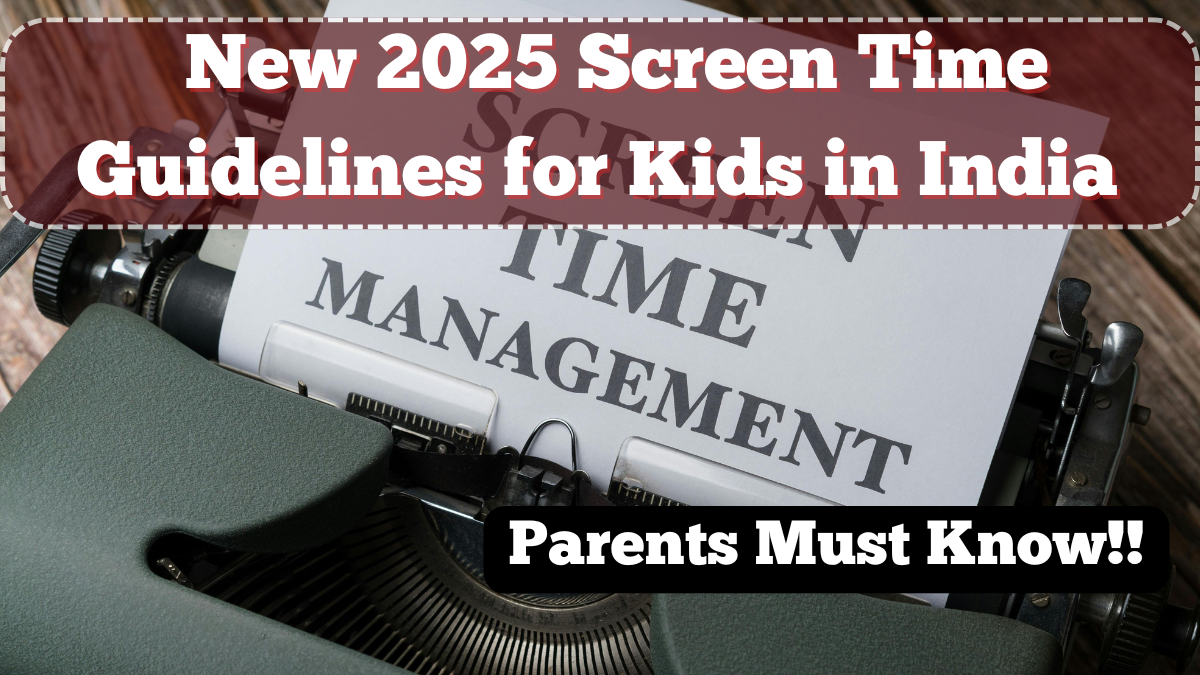The Parenting screen time rules 2025 India have now been officially released, offering families across the country a refreshed roadmap to manage digital habits among children. In response to growing concerns over children’s health, education, and behavior linked to excessive screen exposure, Indian pediatricians, education boards, and digital wellness experts have collectively formulated new national recommendations.
The updated screen time rules aim to help parents create a healthier tech-home balance by introducing age-specific screen duration limits and structured device use strategies. These recommendations are not just ideal practices—they are being actively promoted in schools and parenting forums as urgent guidelines to curb screen addiction and its adverse effects.
Let’s break down what’s new in these parenting India 2025 updates, and how families can adopt these simple but powerful rules to raise mindful, healthier digital natives.

2025 Screen Time Limits by Age Group
As per the new Parenting screen time rules 2025 India, the following age-wise screen limits have been laid down:
| Age Group | Recommended Daily Screen Time | Type of Screen Use |
|---|---|---|
| 0–2 years | 0 minutes | No screens, except video calls |
| 3–5 years | 30–45 minutes | Only educational or supervised use |
| 6–12 years | 1–1.5 hours | Balanced between education and entertainment |
| 13–18 years | Up to 2 hours | Includes school + leisure use with breaks |
The focus is not just on reducing screen time but also on what kind of content children consume. This helps in supporting the digital detox culture that India is now seriously embracing.
Core Principles Behind the 2025 Guidelines
The Parenting screen time rules 2025 India are grounded in four key values aimed at reducing digital dependency while promoting better habits:
-
Screen-Free Zones: Bedrooms and dining areas should be device-free.
-
Fixed Schedules: Set screen time windows during the day for leisure and study.
-
Content Monitoring: Parents must supervise or review app/game/website choices.
-
Active Substitution: Encourage offline hobbies like drawing, reading, and physical games.
These new screen time rules are backed by experts from AIIMS, CBSE, and mental health associations across India, emphasizing the urgent need to promote healthy screen behavior among school-age children.
How Schools and Parents Are Implementing the New Rules
Under the parenting India 2025 directive, schools have also been advised to limit digital classroom time, especially for primary-level students. Several CBSE-affiliated institutions have already reduced screen hours and incorporated mindfulness periods in daily schedules.
Parents, on the other hand, are being encouraged to use parental control apps, monitor screen analytics weekly, and reward children for consistent screen time discipline. Some families have even adopted “tech-free weekends” as a way to build healthier habits.
Here are some quick tools and ideas to make the transition easier:
-
Use Google Family Link, Apple Screen Time, or Qustodio for control
-
Create a shared “tech time calendar” visible in the house
-
Reward consistent digital discipline with outdoor activities
FAQs
What are the official screen time limits for children in 2025?
As per the Parenting screen time rules 2025 India, children aged 0–2 should not have any screen time. Kids aged 3–5 can have 30–45 minutes, 6–12 years old up to 1.5 hours, and teenagers up to 2 hours daily.
Are these screen time rules mandatory for schools in India?
While not mandatory by law, CBSE and other boards are recommending these rules to be followed by all schools and educators under the parenting India 2025 initiative.
How can parents reduce screen time effectively at home?
Establish screen-free zones, fixed digital schedules, use parental control apps, and encourage offline activities like sports, crafts, or reading to support the new screen time rules.
What happens if children exceed the recommended screen time?
Excessive screen time can lead to poor sleep, lower academic performance, attention issues, and increased anxiety—one of the main reasons the Parenting screen time rules 2025 India were created.
Are screen rules different for education vs. entertainment?
Yes. The rules recommend separate blocks for educational use (like online classes) and limited time for entertainment to help children distinguish learning from leisure.
Click here to know more.
